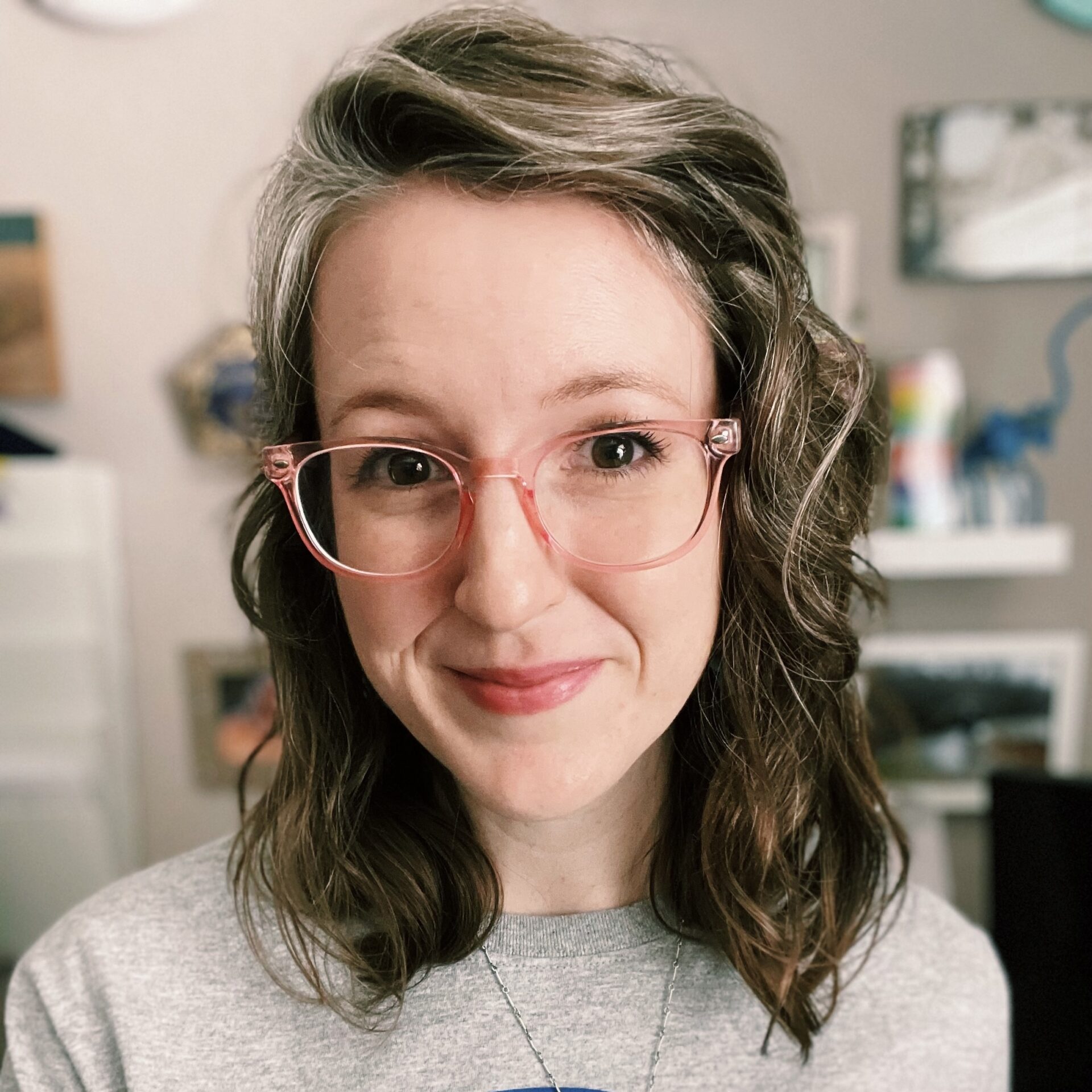Data Career Insights: Lessons from four senior leaders in the data space

How often have you wished you could pick the brains of data science pros, but don’t know how to meet them? Wish granted! In this installment, I’ll share career advice from four brilliant Data Science Hangout leaders to help you grow your skills, build confidence, protect your time, and have better conversations. Oh, and… if you want to ask questions in person, you can totally do that, too! Just join us live any Thursday.
Focus on learning how things work, not on feeling like you should already know how things work.
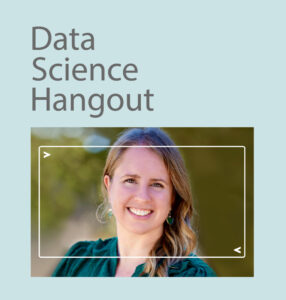 When we were joined by Jamie Warner, Managing Director at Plymouth Rock Assurance, she shared the importance of leaning in to “being the dumbest person in the room.”
When we were joined by Jamie Warner, Managing Director at Plymouth Rock Assurance, she shared the importance of leaning in to “being the dumbest person in the room.”
Maybe you’ve heard this advice before, but she explained that, especially in a data science context, continually asking “why” can be truly strategic: “Because, a lot of times, [with] a legacy process or a model, if someone can’t explain it to you, that means that there are probably issues that you can find in it that you can fix.” As a chronic question-asker, I fully endorse this advice.
You can learn a lot about the potential opportunities in your domain by asking how things work and why they’re done the way they are, but you won’t get there by pretending you know everything already. Yep, you’re going to have to be a little vulnerable.
Approaching problems from the mindset of “I don’t think I know anything, tell me all the stuff, how do I find out all the information” can be so much more helpful (and freeing?) than the self-induced pressure of thinking, “I should know how to do this.” Releasing the pressure to be perfect while also getting ahead and making yourself stand out? Win-win. You can listen to Jamie’s take here.
Get clear about what you like doing, and find teammates who are excited by the stuff you don’t enjoy.
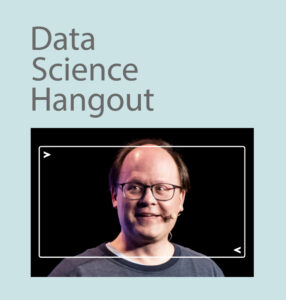 JJ Allaire, Founder of Posit, is no stranger to building companies… but did you know he doesn’t really enjoy all the entrepreneurial and management stuff? He said that one of the best career decisions he ever made was to set boundaries around what he did and didn’t want to do in a role.
JJ Allaire, Founder of Posit, is no stranger to building companies… but did you know he doesn’t really enjoy all the entrepreneurial and management stuff? He said that one of the best career decisions he ever made was to set boundaries around what he did and didn’t want to do in a role.
“So I kind of said, I’m happy to be involved in starting companies, but I’m absolutely not going to do that part, and I’m going to have to find a partner or other people who are excited about doing that part, and what I really want to do is focus on engineering and product development.”
He said it’s easy to get pulled in a lot of different directions as a founder, and that’s something many people can relate to, I think, even if they’ve never founded a company. I certainly can. He explained that it’s beneficial to figure out the difference between what you truly like to do and what people are putting upon you or what you feel like you “should” do. I feel this on a deep level. It took me years to realize that I needed to go against the grain of everyone else’s expectations if I was going to be happy.
Have you ever been roped into doing something you don’t enjoy just because people think you should want it? Or maybe because you’re good at it? Next time, channel JJ’s calm sense of self-awareness and consider setting a boundary. You can hear him discuss it in his own words here.
Be open to the less flashy side of data science – you might just realize it’s the most gratifying part.
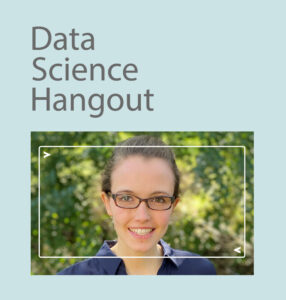 In her Hangout episode, Emily Riederer, Senior Manager of Analytics & Data Science at Capital One, was asked how to think about transitioning into data science roles with the knowledge that many data practitioners aren’t getting to spend much time, if any, building fancy machine learning models.
In her Hangout episode, Emily Riederer, Senior Manager of Analytics & Data Science at Capital One, was asked how to think about transitioning into data science roles with the knowledge that many data practitioners aren’t getting to spend much time, if any, building fancy machine learning models.
Her (stellar) response was to keep in mind that the parts of data science that get the most hype and the most focus in schools may not be the most satisfying parts. She said, “It’s also really good to recognize, you can learn a ton in pretty much any role.”
She went on to say that “in school, we spend most of our time learning hyperparameter tuning,” but “that often isn’t the hard part or, sometimes, even the most interesting part.” She recommends “being open with that kind of growth mindset of, whatever job you end up in, there’s going to be a ton to learn, and a ton of really interesting work to be done.”
I love Emily’s advice! Keep an open mind and knowledge will eventually find its way in. You can hear Emily’s advice for yourself here.
Get comfortable with saying no and being radically transparent with those around you.
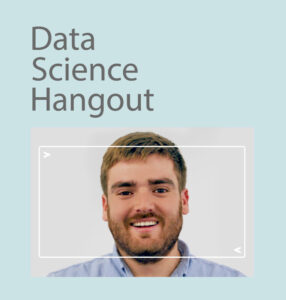 “I think being comfortable with the word no is really important,” says Ben Arancibia, Director of Data Science at GSK. “Ruthlessly prioritizing your time” will prevent being overloaded and help ensure that you’re focusing on things you’re passionate about, but it might just have an added benefit you wouldn’t expect, Ben explains.
“I think being comfortable with the word no is really important,” says Ben Arancibia, Director of Data Science at GSK. “Ruthlessly prioritizing your time” will prevent being overloaded and help ensure that you’re focusing on things you’re passionate about, but it might just have an added benefit you wouldn’t expect, Ben explains.
“If you think about your [personal] brand management, it’s sometimes nice to be wanted. So, saying ‘no’ sometimes is good for that brand management.” Confidently and honestly saying no to things that aren’t the right fit for you might be daunting at first, but it’s worth it.
Ben also recommends being radically transparent. In radical transparency, he says there’s “no such thing as holding cards close to your chest. You basically say, here’s what I’ve got. What do you have?” He says the open and honest conversations you’ll have will lead to greater vulnerability, “which is how you make connections with people and are really able to be empathetic with people and trying to understand their problems.” If you know anything about me, you know I wholeheartedly agree with him on this. You can listen to Ben’s advice for yourself here.
Want to get the chance to ask data science leaders your own burning questions?
Of course, you do! And we want you to join us. The Data Science Hangout is a live call every Thursday at 12pm Eastern. There’s no set agenda, no PowerPoint slides, just a big group of friendly data people powering a discussion with a different data leader each week. Past guests have included data world stars like Wes McKinney (co-creator of pandas), Julie Silge (co-author of many tidy modeling books and packages), and Hadley Wickham (of tidyverse fame). Add it to your calendar (big blue button) and view upcoming guests here.
Who is the Data Science Hangout for?
- People who want to solve problems with data
- People who use code of any language to work with data, or aspire to learn to code
- People who work on or with data teams, lead data teams or aspire to join data teams
- People who appreciate a warm, welcoming environment and want to make Thursdays their favorite day of the week 😎
We’ll see you there!
